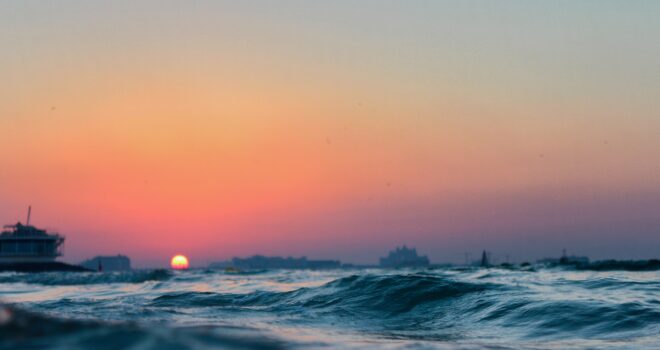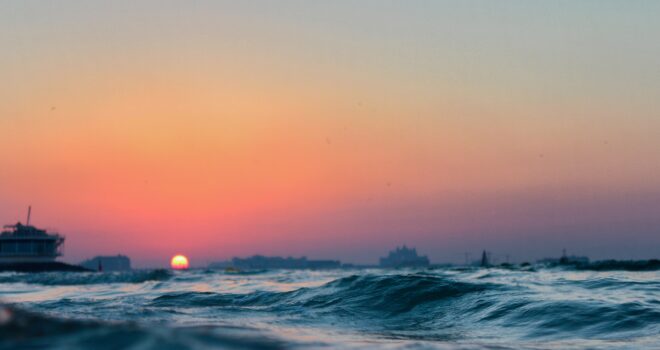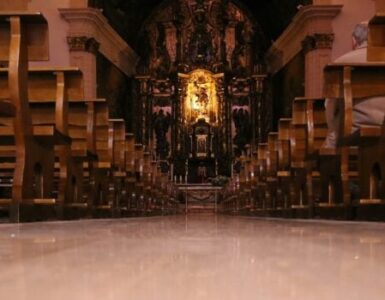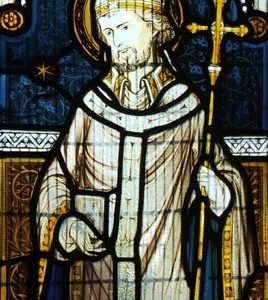The Island Without Seasons by Robert Lazu Kmita is a marvelous, astounding achievement. During a lifetime of reading and over nearly forty years of writing reviews, I have never read anything quite like it. It brings other works to mind, but only in a partial manner. The alienation of the narrator is similar to the beginning of “The Matrix.” The book’s structure is reminiscent of Plato’s dialogues. The depiction of nobility resonates with Michael O’Brien’s The Sabbatical. The adventure elements led me to think of Jules Verne and Elizabeth Kostova’s The Historian. There are elements here of mythology. And, naturally—Kmita is a Tolkien scholar—those familiar with Middle Earth will see parallels between the Atlantis found on Kmita’s pages and Numenor, both destroyed because of hubris.
Subtitled The Novel of Atlantis, Kmita’s book has been smoothly translated from the Romanian by James Christian Brown. The author deftly shows himself at ease with the many elements comprising Western Civilization, especially the works and ideas of Plato. Although my training in philosophy is limited, this book would seem to be useful in introducing people to Plato and Socrates, for it has structural elements of a Socratic dialogue. One important aspect of this teaching found in the book is the concept of telos, or end point, and how people and things are correctly oriented toward an end. Without that knowledge a person will flounder, much like today’s drivers with a malfunctioning or incorrect GPS. Alexander, the novel’s narrator, is floundering at the beginning of his story, until he gets a mentor to help him remember what he has forgotten: the search for truth is the search for God.
Hubris (or hybris, as it is sometimes transliterated into English) is overweening pride, and it works against the search for truth since it declares that we or I am the summit of knowledge and power. In this novel we encounter characters acting with hubris. Some realize it and repent; others, tragically, do not.
So, is this a Catholic novel? Yes. But also a philosophical novel? Yes. And about Atlantis, source of so much esoteric and occult speculation? Again yes. How? As Treebeard answered the inquisitive and garrulous duo of Merry and Pippin: “Hoo! Now that would be telling!” One will have to read the book to reap its rewards.
I won’t give any spoilers, but I can give some description of the contents. We are provided a panorama of Western history and pre-history, but also given some landmarks to help us tie them together into a coherent narrative. The book is chock-full of details of the setting of the action which seem plausible. The Atlantis angle is definitely not in any way at odds with the Faith. The Island Without Seasons contains strong elements of mystery, and the narrator has to do detective work that would make Sherlock Holmes proud. There is also a large amount of physical courage involved, as well as philosophical reasoning. The only possible downside of this wonderful novel is its highly intellectual nature and accompanying high-level diction. Kmita challenges the reader to come along for an exciting journey. I found myself yearning for more contact with this great tradition of thinking that motivated so many of our Catholic forebears to discern and share with us great intellectual and spiritual riches.
There are many novels around that will not challenge us in any way. There are plenty of novels that are long on ideas but short on any narrative excitement or character development. And then there is Kmita’s splendid Platonic adventure novel.
Photo by Ashutosh Bhardwaj on Unsplash












